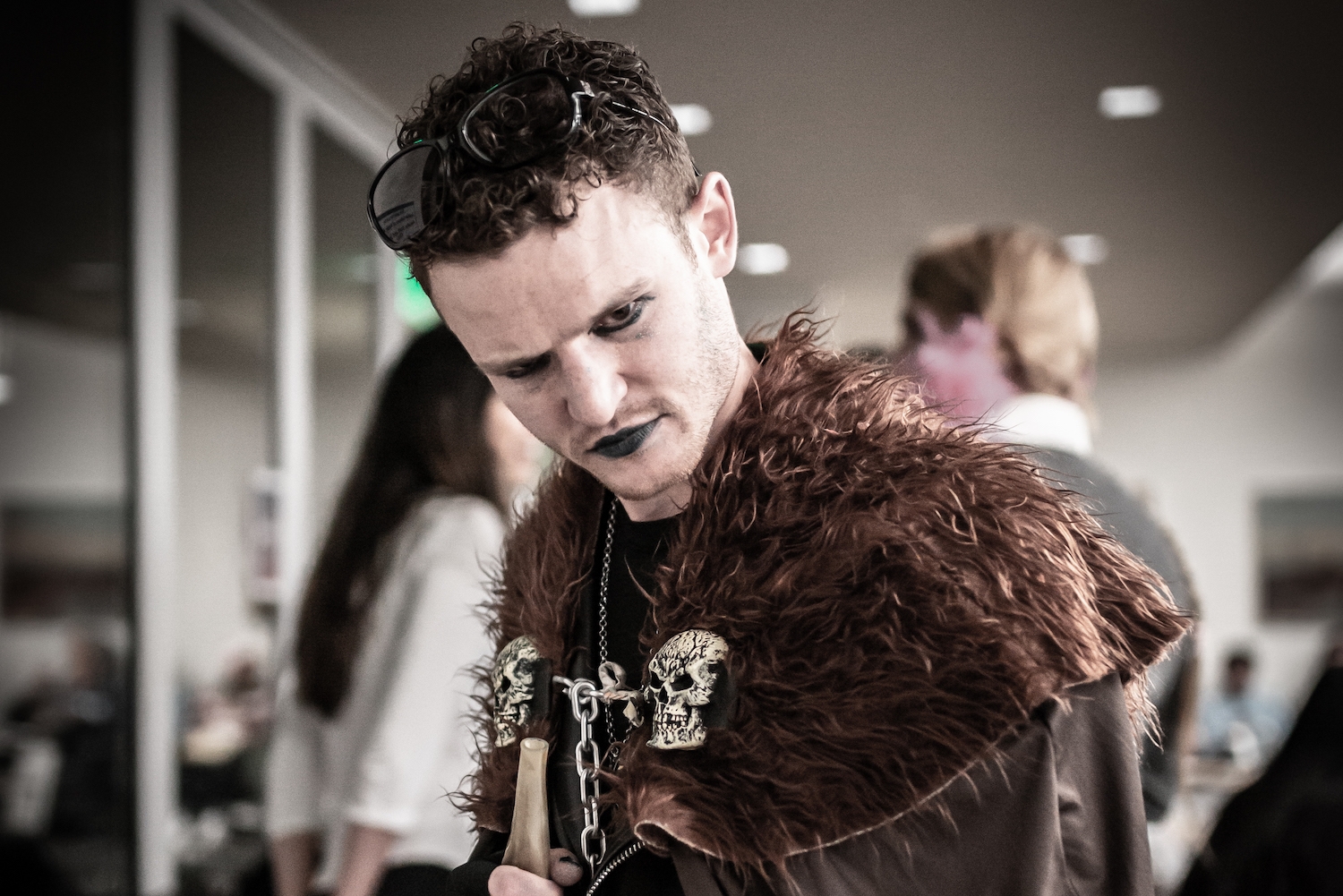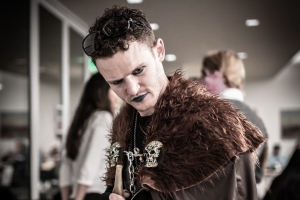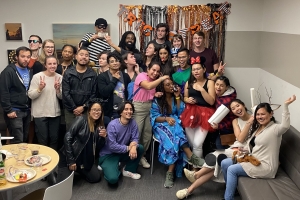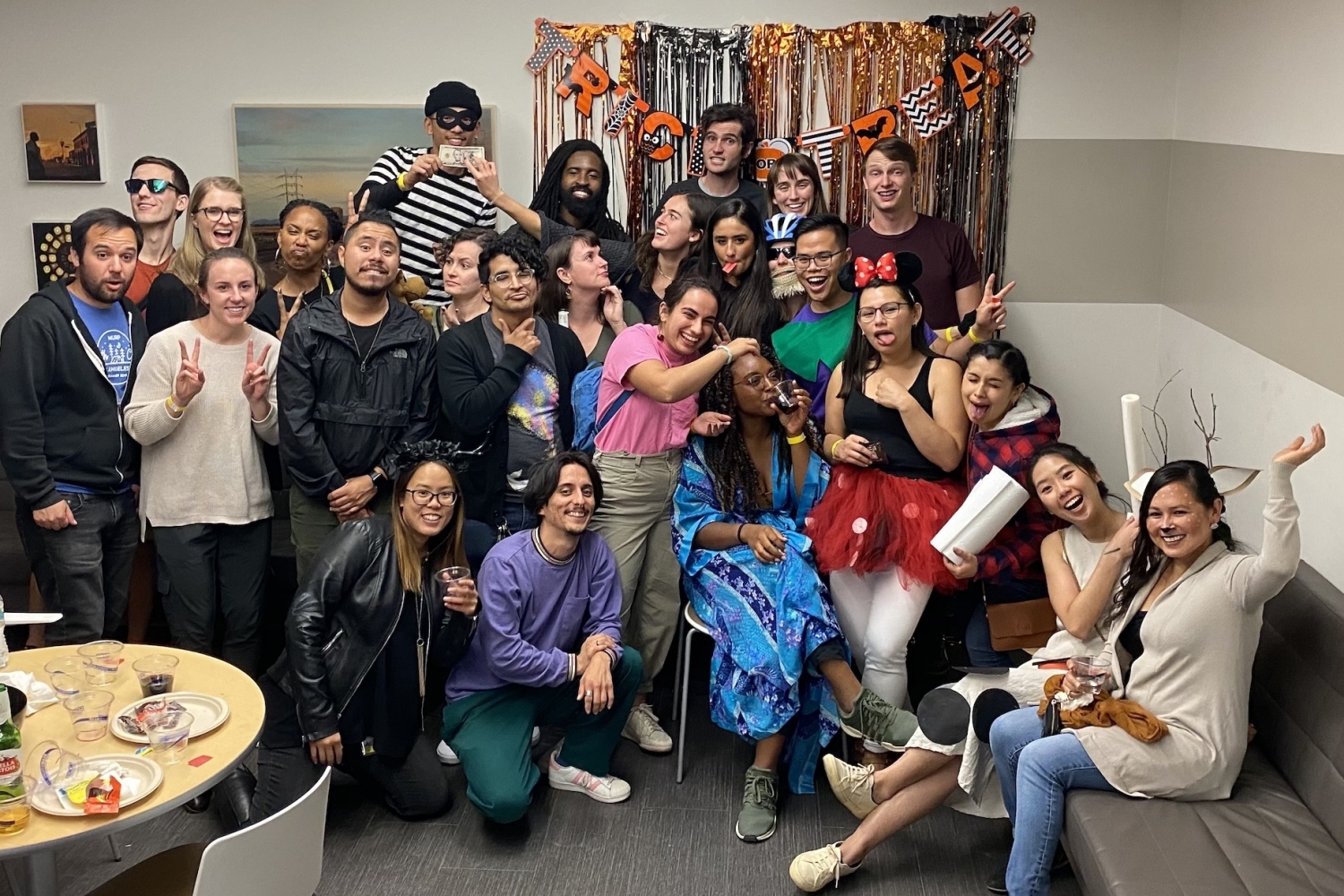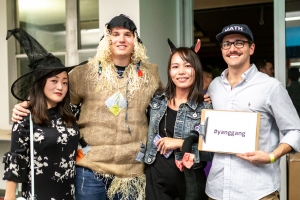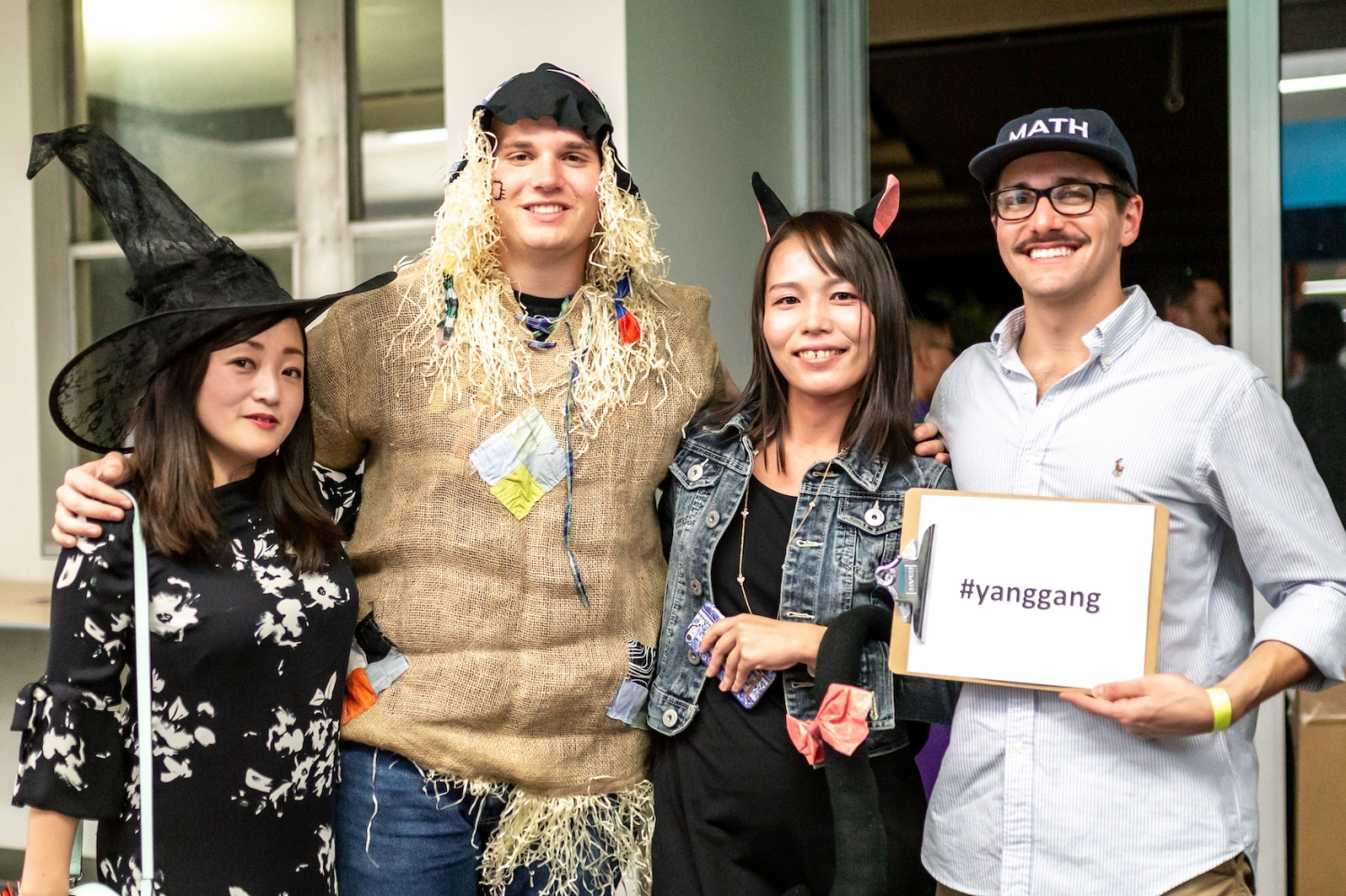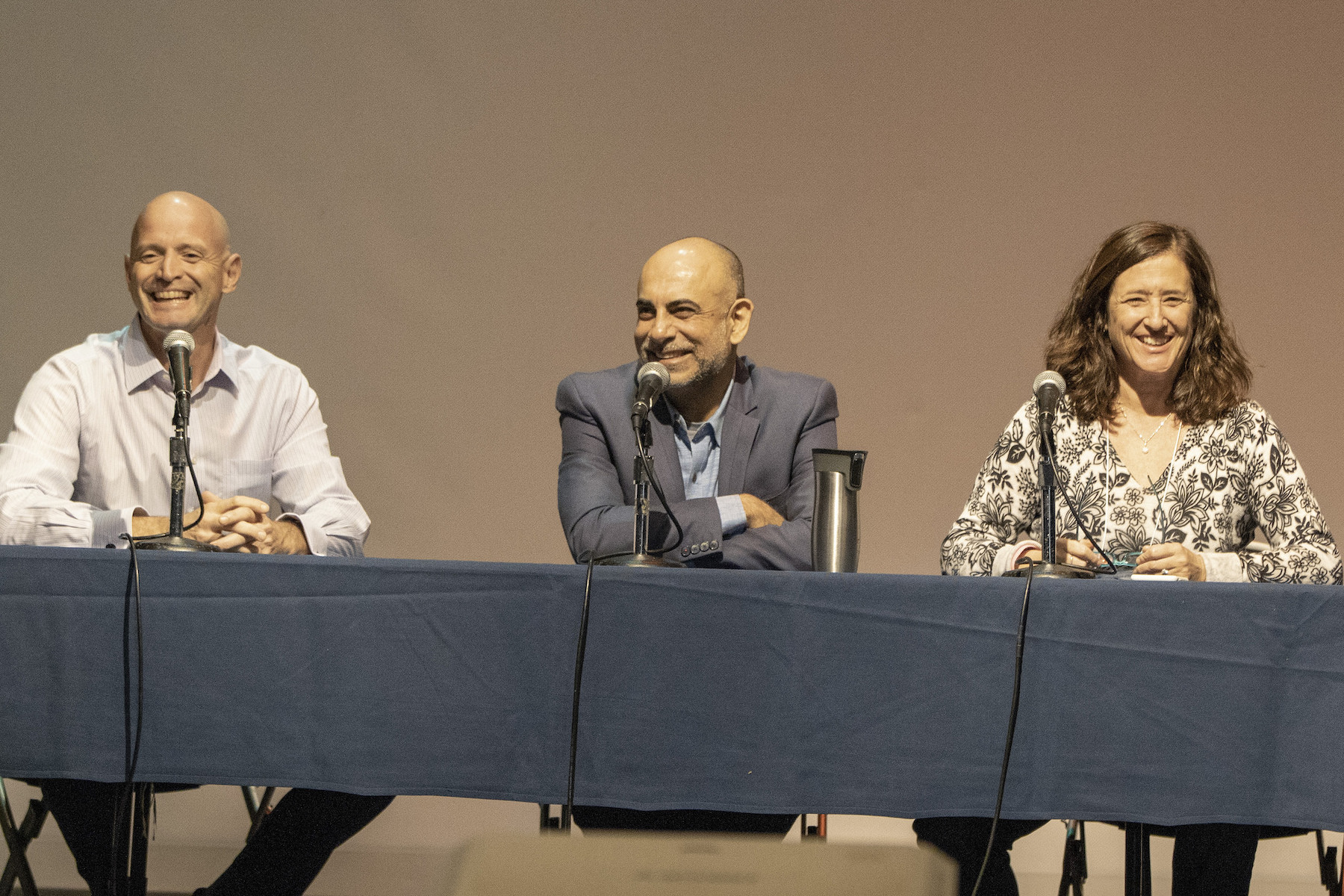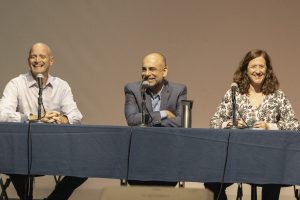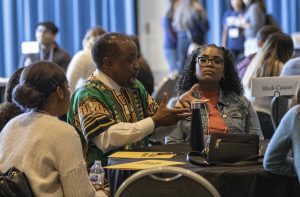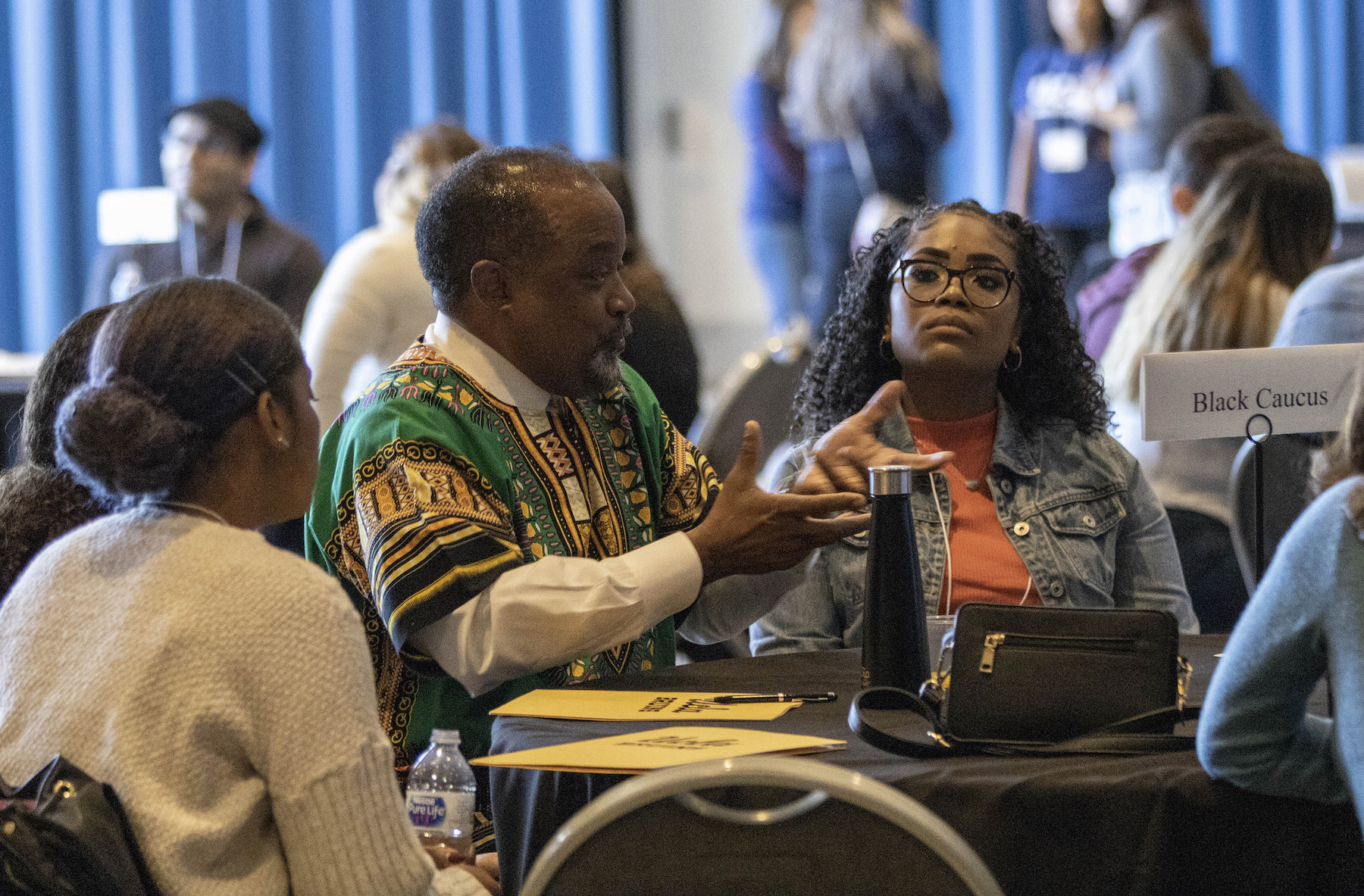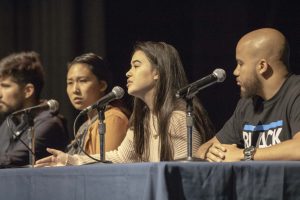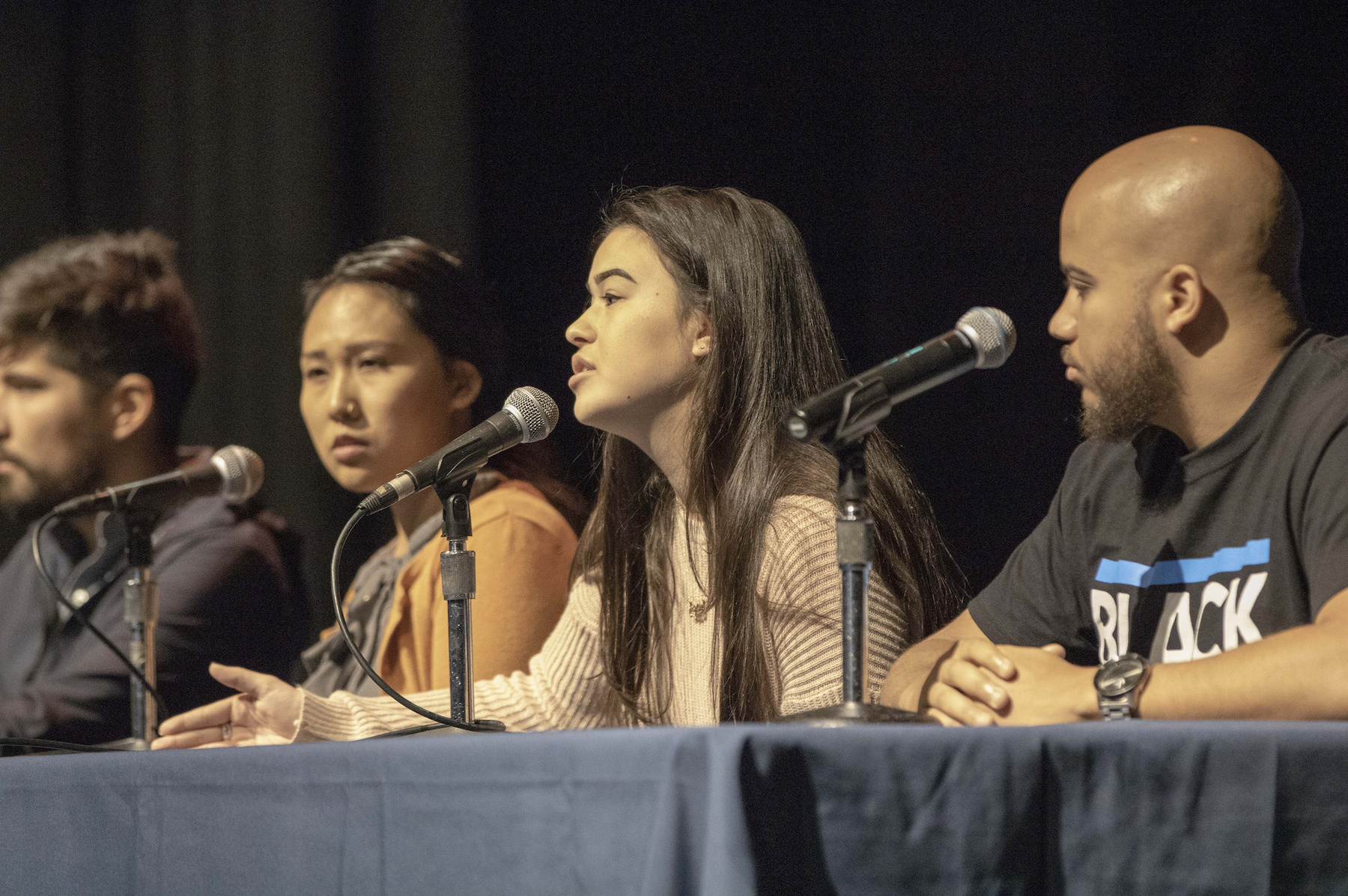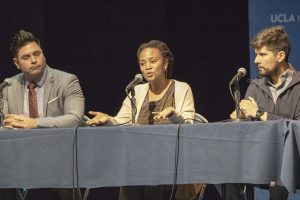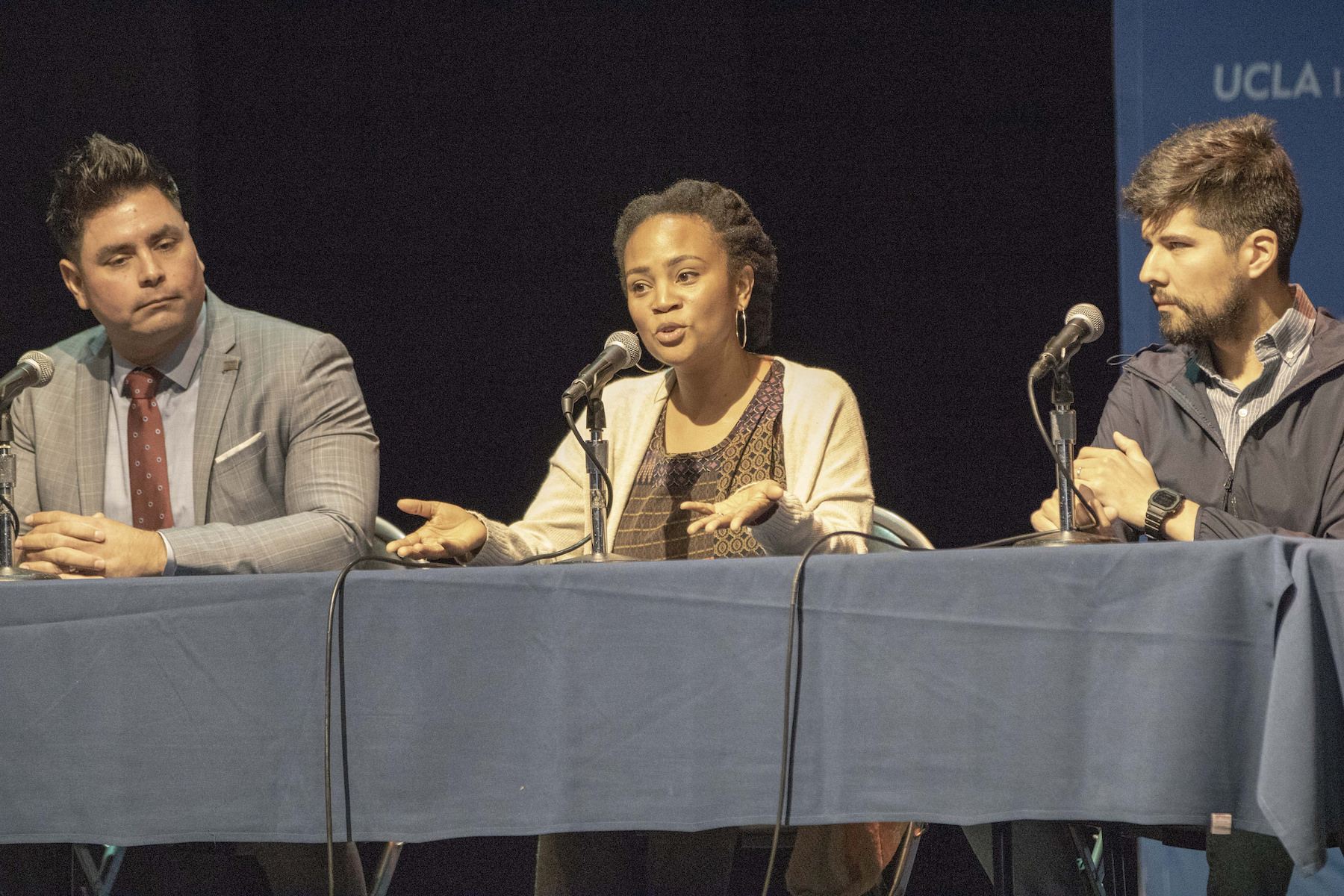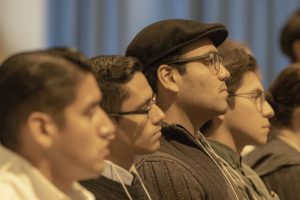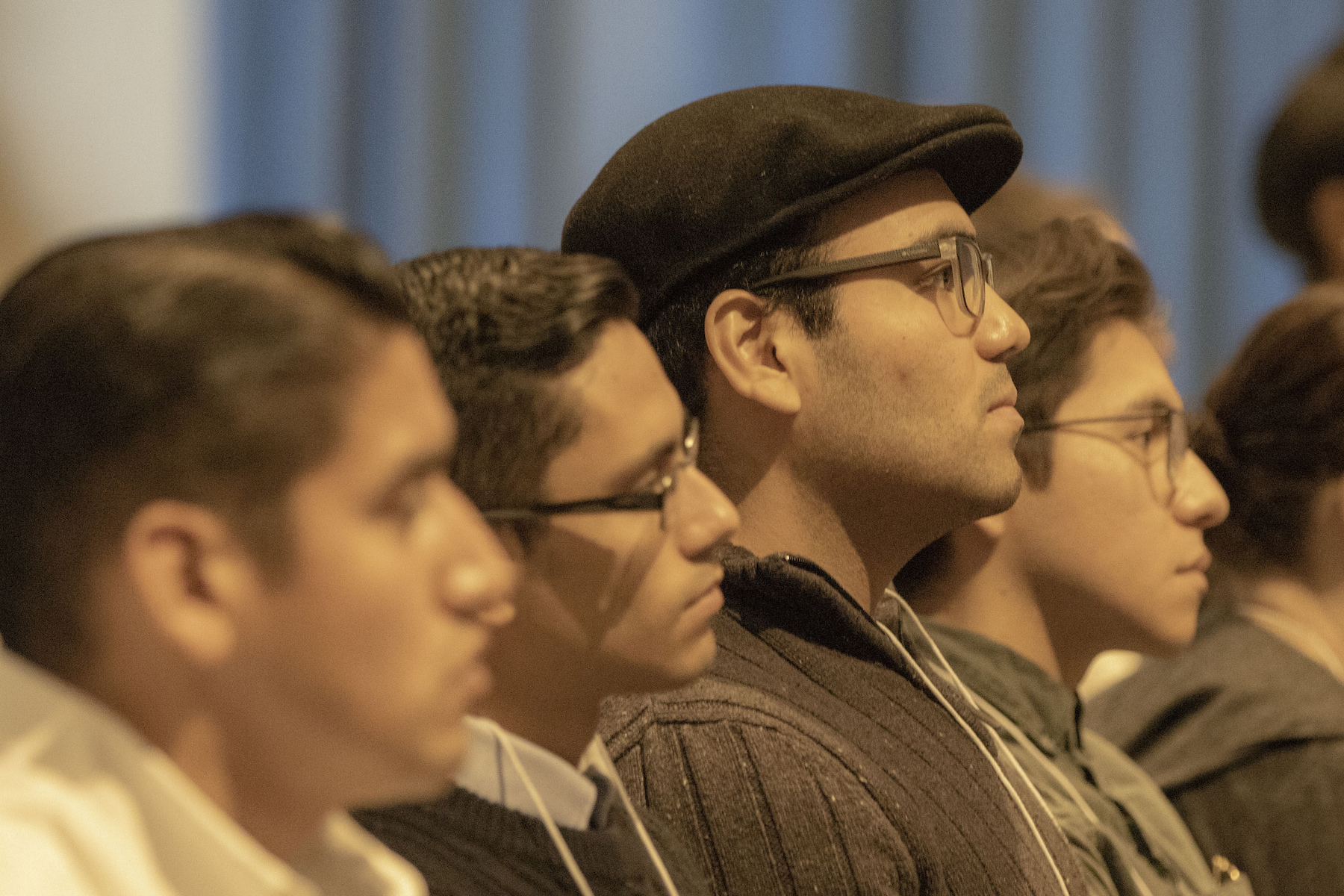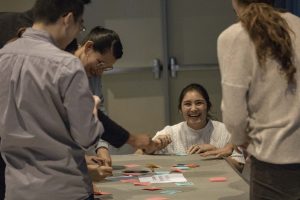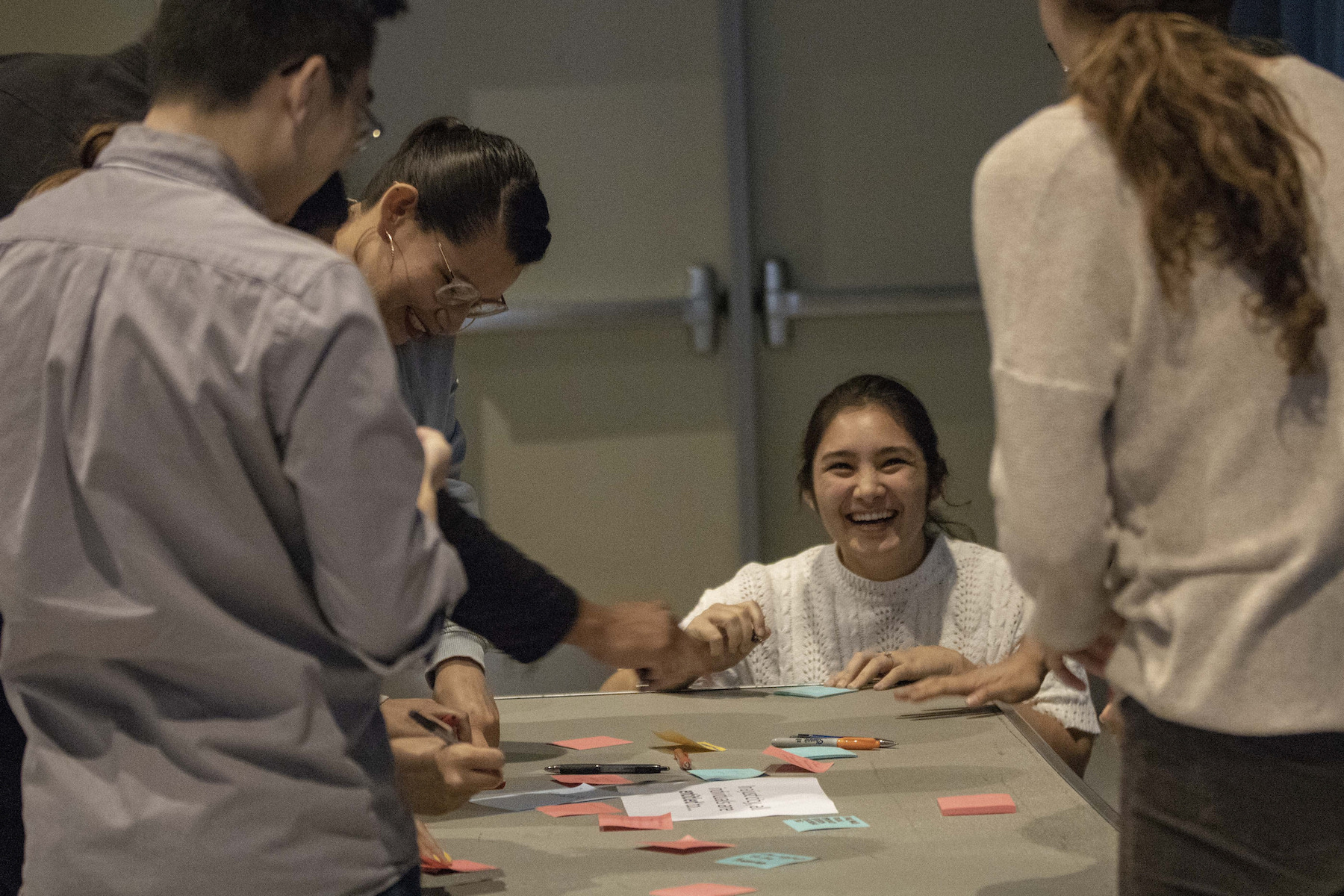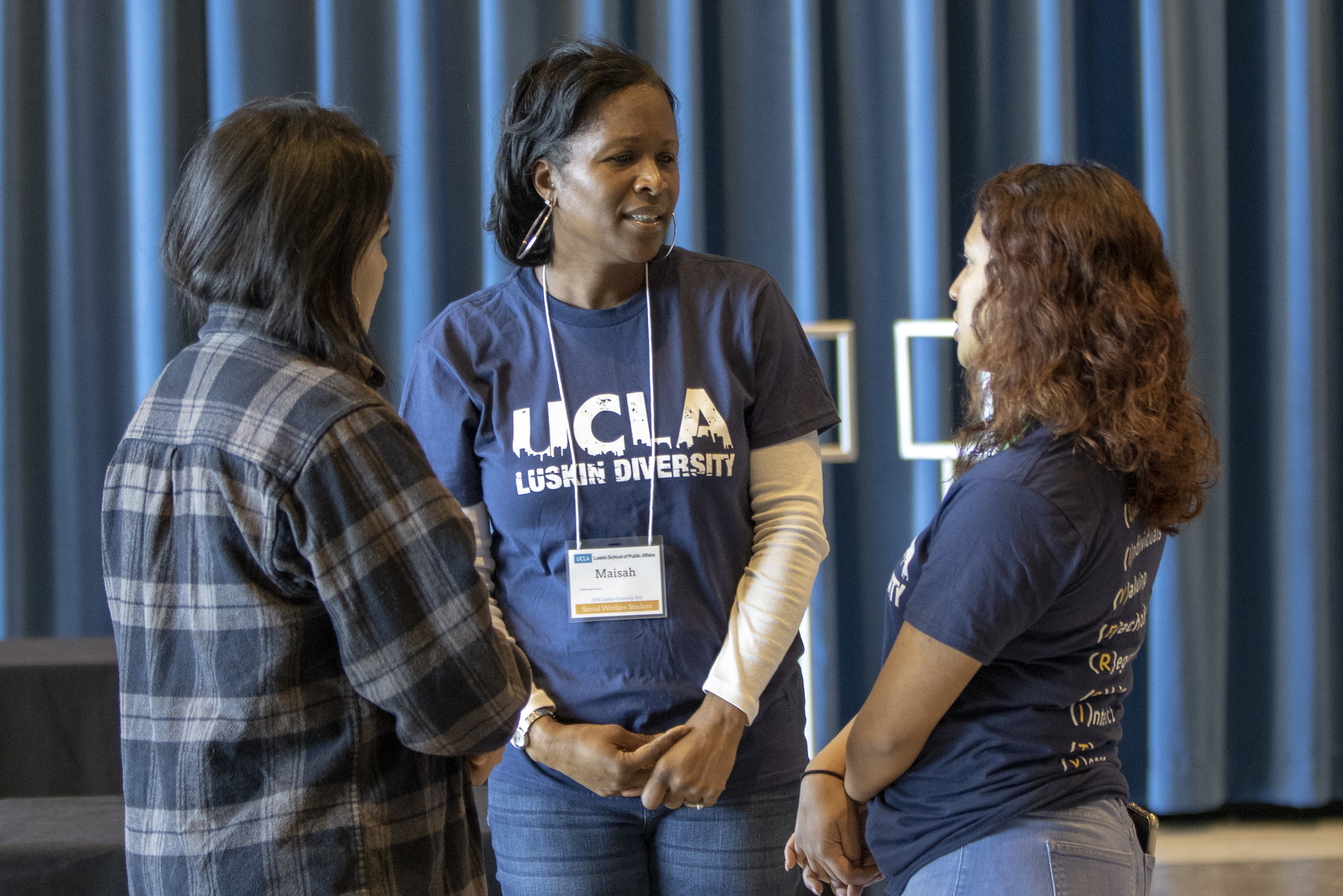By Stan Paul
Estefanía Zavala, Michelle Lin and Jordan Hallman are all up early on a Sunday morning. They meet at a favorite coffee shop in Hollywood. This is when the trio of busy UCLA Luskin School of Public Affairs students can break from their fast-paced two-year professional programs to discuss a topic central to their lives, studies and future careers.
Diversity.
It’s important at UCLA Luskin, especially to the numerous student groups working to make their programs, the School and the campus more inclusive. At the time, Zavala, Lin and Hallman were student program managers for the UCLA Luskin initiative known as D3 – Diversity, Disparities and Difference. Launched in 2014 by former Dean Franklin D. Gilliam, Jr., D3 aims to “create a cohesive strategy to bridge differences, understand our diverse society and confront disparities in the field of public affairs.”
“I was really interested from the get-go, and the mission of D3 really aligns with Social Welfare’s mission, our core values of social justice and equity. And that’s always been a topic of interest to me and trying to improve the way things are and make sure that the campus is inclusive for all people,” Lin said.
The D3 Initiative is one of many UCLA Luskin student groups focused on issues of equity and social justice. Among the others are Urban Planning Women of Color Collective, Planners of Color for Social Equity, Policy Professionals for Diversity & Equity, Luskin Pride, Black Caucus, Asian Pacific Islander Student Caucus (API), Latinx Student Caucus and Diversity Caucus.
Working independently or in collaboration with D3, the groups host Schoolwide and campus events designed to promote collaboration, bridge gaps and encourage understanding. These include an Equity in Public Affairs research conference and group dialogues with incoming UCLA Luskin students.
“My favorite experience thus far has been the Equity in Public Affairs training that we do in the beginning of the year, where students share their unique identities and receive training on operating professionally in a diverse environment,” said Zavala, who recently earned her MPP degree after also serving as a leader of Policy Professionals for Diversity & Equity. “I got to meet so many people and really got to understand them.”
The D3 Initiative has three priorities:
- Enhance student admissions and faculty searches by championing more diverse applicant pools;
- Institutionalize programming that offers a critical understanding of social inequity while establishing connections with the greater community;
- Strengthen student collaboration for a more inclusive school climate.
That mission is supported by the office of Dean Gary Segura as part of efforts to build an equitable environment on campus that has hired new faculty whose research and areas of interest include a social justice focus.
The D3 group has coordinated gatherings known as “Difficult Dinner Dialogues,” which invite classmates and others with diverse backgrounds and different life experiences to share and learn from one another.
“I think it’s a space, call it a brave space. It’s a brave space for everyone to come and not feel judged for what they think because it’s about being open to learning, so that will hopefully change the political climate,” said Lin, who has since earned her social welfare degree.
One Dinner Dialogue focused on sexual assault and “the role of men and women of color who don’t have the means to quit their job or speak out against their employer, the power dynamics of that,” Lin said.
“People really felt like this was the beginning of the conversation and they wanted even more,” she added.
In addition to their Sunday meetings, the student leaders stayed connected throughout the year with D3 faculty director Gerry Laviña MSW ’88, Social Welfare’s director of field education, along with the dean’s office staff. During the 2017-18 academic year, D3 added office hours to collect feedback, questions and concerns directly, and in confidence, from students at UCLA Luskin.
Hallman, who has since earned her urban planning degree, said her professional focus is “the intersection of transportation and land use and the responsibilities that come with approaching that point of intersection justly and equitably, which is a relatively new conversation within planning. I think participating in D3 has also led me to a role where I try to shed light on other points of intersection that aren’t talked about.”
For Zavala, connecting with peers from UCLA Luskin’s other two departments was important.
“The D3 position has empowered me to create a community across all three departments. I hope that in any future career that I have, I work actively to form bridges across silos and uplift the work of diversity. I also want to center my professional career on empowering traditionally marginalized communities. Starting at Luskin has been a wonderful experience,” Zavala said.
The D3 Initiative also supports students with awards, grants and funding for their work, including the Franklin D. Gilliam, Jr. Social Justice Awards, which were created to recognize student scholarship in social justice and inequality. The award was made possible by contributions from the School’s board of advisers, UCLA faculty, staff and alumni.
“We are not yet where we need to be and there is still much to do, but D3 has been a guiding force for progress,” said Isaac Bryan MPP ’18. With the help of a Gilliam Award, Bryan’s Applied Policy research group studied the dynamic needs of the city’s formerly incarcerated reentry population for Los Angeles Mayor Eric Garcetti.
“D3 empowers us all to continue placing diversity, equity and inclusiveness at the forefront of the work we do here in Luskin,” said Bryan, who is also a member of Policy Professionals for Diversity & Equity.
As a PhD student in urban planning, Aujean Lee also received funding through the D3 Initiative, including the Gilliam Award.
“These resources are important because urban planners, and planning research, still need to engage with and grapple with its historical legacies of racism, classism, sexism, homophobia, ableism, etc., that continue to shape our cities and communities,” Lee said.
A version of this story also appeared in the Summer 2018 edition of Luskin Forum magazine.
